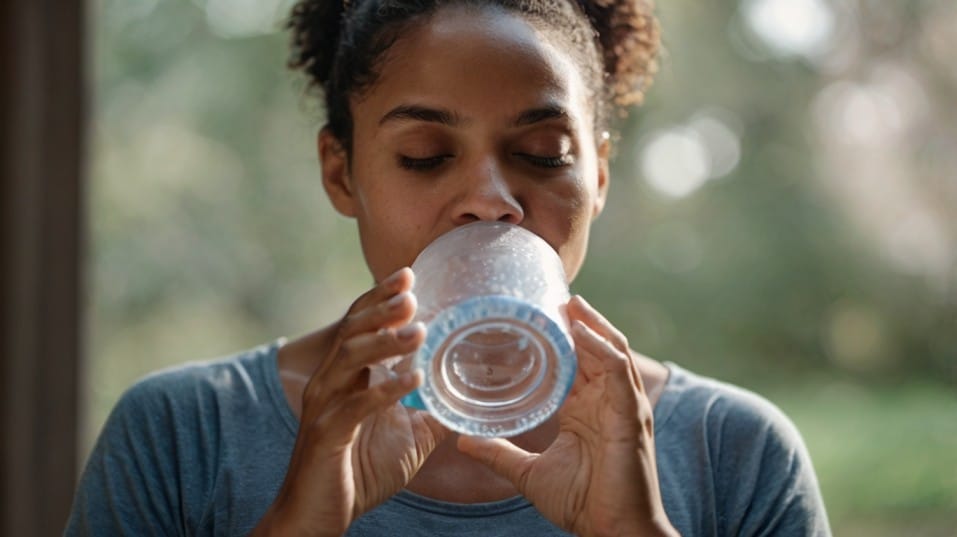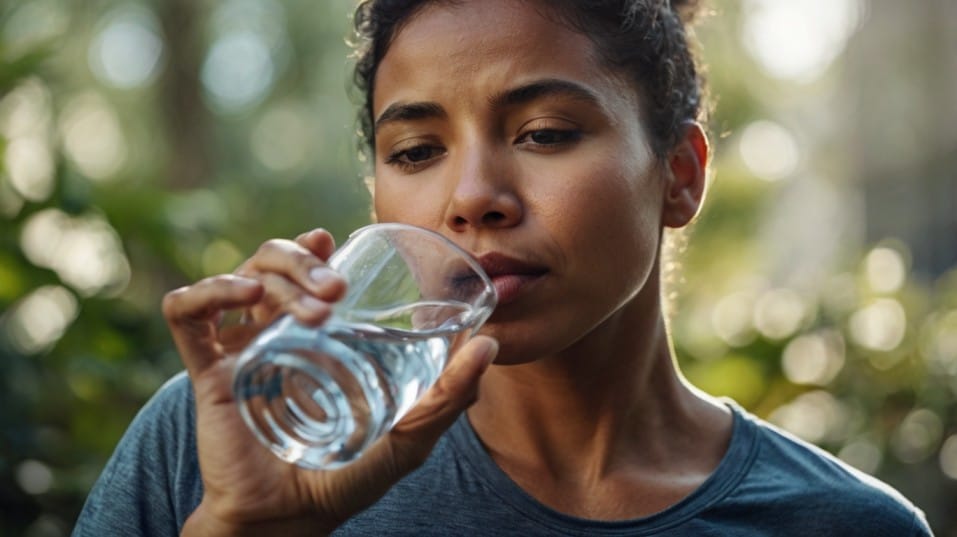The Science of Hydration and Mindfulness for Peak Mental Performance
Hydration and mindfulness enhance focus and performance. Learn strategies to stay hydrated and mentally sharp throughout the day.

Is dehydration quietly undermining your productivity at work? Many professionals feel drained or distracted by afternoon without realizing the culprit might simply be a lack of water.
Dehydration silently disrupts cognitive performance and emotional stability, yet mindful hydration can transform an overlooked habit into a powerful productivity booster.
If you’re aiming for consistent mental clarity and resilience throughout your day, the solution might be closer—and simpler—than you think.
How Hydration Fuels Cognitive Performance
Water is essential for brain function. Dehydration reduces oxygen flow, slows processing speed, and increases mental fatigue.
A well-hydrated brain stays sharp, supporting memory, problem-solving, and sustained focus. Proper hydration also stabilizes mood by regulating cortisol levels, the body’s primary stress hormone, reducing anxiety and preventing burnout.
Even a 2% drop in hydration can impair cognitive abilities, making tasks feel harder and reducing overall efficiency.
Hydration and Memory Retention
Water plays a direct role in short-term memory and recall. Studies show that dehydrated individuals struggle with working memory, making it harder to retain and process information.
This is particularly crucial in professional settings where quick thinking and adaptability are essential.

The Impact on Emotional Regulation
Mood swings, irritability, and heightened stress levels are common symptoms of dehydration. Proper hydration supports neurotransmitter function, helping maintain emotional balance and resilience.
Staying hydrated can ease feelings of anxiety and frustration, allowing for better interpersonal interactions and more effective decision-making.
The Mindfulness-Hydration Connection
Mindfulness is about awareness—of thoughts, sensations, and bodily needs. Hydration, when practiced mindfully, strengthens this awareness and helps professionals stay present.
Noticing thirst signals, using hydration as a reset between tasks, and savoring each sip turn an automatic habit into a powerful performance enhancer.
How Hydration Reinforces Mindfulness
Water consumption can serve as a reminder to pause, breathe, and reset. By turning hydration into a mindful practice, professionals can prevent mindless drinking, enhance their presence, and stay attuned to their body's needs.
Developing this habit not only improves hydration but also reinforces focus and self-awareness throughout the day.
Mindful Hydration Strategies for Work
Turning hydration into a mindful habit enhances your performance throughout the workday. To set the tone right from the start, begin each morning with purposeful hydration.
Hydrate with Purpose in the Morning : Start the day with a full glass of water before coffee. Notice its temperature, taste, and sensation as you drink. This small act grounds you and kickstarts mental clarity.
Use Water as a Reset Tool : Instead of mindlessly sipping, let hydration signal a mental shift. Before meetings or new projects, take a deep breath and drink slowly. This simple pause enhances focus and reduces tension.
Pair Hydration with Breathwork : Drinking water can be a calming ritual. Try inhaling deeply before a sip and exhaling slowly after. Techniques like 4-7-8 breathing (inhale 4 sec, hold 7 sec, exhale 8 sec) amplify relaxation and focus.
Make Hydration Breaks Intentional : Set reminders, but not just for drinking—use hydration as an opportunity to step away, stretch, or reset mentally. Even a minute of mindful hydration can counteract stress and boost energy.
Savor the Sensory Experience : Rather than gulping down water while distracted, take a moment to engage fully. Feel the coolness, notice the refreshment, and use the act of drinking as a micro-moment of mindfulness.
Creating a Hydration-Friendly Work Environment
Making hydration effortless is key. Keep a water bottle within reach, opt for herbal teas or infused water for variety, and use a stylish bottle that encourages frequent sipping.
Offices that promote hydration stations, provide easily accessible water coolers, and incorporate hydration-friendly policies help employees maintain optimal performance.
Hydration Myths That Hold You Back
Misunderstandings around hydration are common and can unintentionally reduce your productivity. Among these misconceptions, one of the most widespread—and harmful—is relying solely on thirst as your hydration guide.
Waiting for Thirst Means You're Already DehydratedBy the time you crave water, cognitive function has already declined. Sip regularly to sustain peak performance.
Coffee and Tea Are Not SubstitutesWhile they contain water, caffeine acts as a diuretic, leading to fluid loss. They should supplement, not replace, water intake.
Eight Glasses a Day Isn’t a Universal RuleHydration needs vary. A better guideline? Drink at least half your body weight in ounces of water daily.
Signs of Dehydration in a Work Setting
Many professionals are dehydrated without realizing it. Watch for signs like difficulty concentrating, frequent headaches, dry eyes, and increased stress levels.
If you notice sluggish thinking or mood fluctuations, try increasing your water intake before reaching for caffeine or sugar.
Final Thoughts: Start Now
Hydration isn’t just about drinking more water—it’s about drinking mindfully. Small shifts like intentional sipping, breath awareness, and hydration resets can have lasting effects on focus, stress levels, and energy.
Start incorporating one mindful hydration habit today and notice the difference in your clarity and productivity. The next time you reach for your water bottle, use it as an opportunity to pause, breathe, and reset—your brain will thank you.




